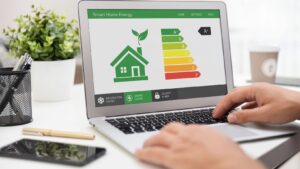Importance of Sustainable Development Class 10
 Sustainable development isn’t just a buzzword; it’s a crucial concept that students in Class 10 need to grasp for a better future. As the world grapples with climate change, resource depletion, and social inequality, understanding sustainable development becomes essential. It equips young minds with the knowledge to balance economic growth, environmental protection, and social well-being.
Sustainable development isn’t just a buzzword; it’s a crucial concept that students in Class 10 need to grasp for a better future. As the world grapples with climate change, resource depletion, and social inequality, understanding sustainable development becomes essential. It equips young minds with the knowledge to balance economic growth, environmental protection, and social well-being.
Incorporating sustainable development into the Class 10 curriculum ensures that students recognize the interconnectedness of global challenges. They learn how their actions impact the planet and society, fostering a sense of responsibility and empowering them to make informed decisions. This foundational knowledge prepares them to contribute to a more sustainable world, making it a vital part of their education.
Understanding Sustainable Development
Sustainable development involves meeting the needs of the present without compromising the ability of future generations to meet their own needs. This concept balances economic growth, environmental protection, and social equity. Class 10 students learn that sustainability integrates these three pillars to foster a thriving global community.
Economic growth in sustainable development ensures that resources are used efficiently. Students learn about renewable energy sources  like solar and wind, which provide long-term economic benefits without depleting resources.
like solar and wind, which provide long-term economic benefits without depleting resources.
Environmental protection is crucial to sustainability. Students explore the impact of deforestation, pollution, and climate change. They study how actions like planting trees, recycling, and conserving water contribute to a healthier planet.
Social equity ensures that all people have access to opportunities and resources. Lessons include discussing fair trade, gender equality, and access to education. By understanding these issues, students recognize the importance of creating an inclusive society.
Studying sustainable development helps Class 10 students grasp the interconnectedness of these global issues. They see how economic actions affect the environment and vice versa. This comprehensive understanding fosters responsible behavior, encouraging them to make decisions that benefit both society and the environment.
Importance Of Sustainable Development Class 10
Teaching sustainable development to Class 10 students equips them with knowledge to address pressing future challenges. It instills a sense of stewardship for the planet and society.
Environmental Impact
Sustainable development education emphasizes the critical need for environmental protection. Students learn about reducing carbon footprints by using renewable energy sources like solar and wind. They understand the importance of conserving water through methods like rainwater harvesting and recycling. By studying the impacts of deforestation, pollution, and climate change, they grasp how individual actions can collectively reduce environmental degradation.
Economic Benefits
Education on sustainable development highlights economic advantages. Students see how sustainable practices lead to long-term financial savings, such as through energy-efficient appliances. They learn about green jobs in renewable energy and waste management sectors. Understanding the economic impact of overexploitation of resources helps them appreciate sustainable agriculture and fair trade practices. This knowledge prepares them to support an economy that is both prosperous and responsible.
Social Equity
 The curriculum underscores the significance of social equity in sustainable development. Topics cover gender equality, emphasizing equal opportunities for all genders in education and employment. Fair trade discussions teach the importance of ethical consumerism, ensuring producers in developing countries receive fair compensation. Access to education for all, regardless of socioeconomic status, is another critical area. By understanding these social dimensions, students foster inclusive communities, advocating for fairness and justice.
The curriculum underscores the significance of social equity in sustainable development. Topics cover gender equality, emphasizing equal opportunities for all genders in education and employment. Fair trade discussions teach the importance of ethical consumerism, ensuring producers in developing countries receive fair compensation. Access to education for all, regardless of socioeconomic status, is another critical area. By understanding these social dimensions, students foster inclusive communities, advocating for fairness and justice.
By exploring these aspects, students in Class 10 become well-rounded individuals ready to contribute to sustainable progress.
Key Principles Of Sustainable Development
Economic Growth
Economic growth focuses on increasing a nation’s economic output without depleting natural resources. Sustainable practices in industries, such as efficient energy use and waste management, reduce costs and create long-term financial gains. Class 10 students learn about green technologies, renewable energy sources, and sustainable business practices to promote economic stability.
Environmental Protection
Environmental protection involves preserving ecosystems and promoting biodiversity. By adopting conservation strategies like recycling, reusing materials, and conserving water, students can help reduce their ecological footprint. Class 10 curriculum includes detailed lessons on climate change, the importance of reducing carbon emissions, and maintaining natural habitats.
Social Equity
Social equity ensures that all individuals have access to resources and opportunities. It covers issues like fair trade, gender equality, and access to education. Students understand the importance of ethical consumerism and how economic activities impact different social groups. Education on social equity encourages inclusive societies and equitable resource distribution.



